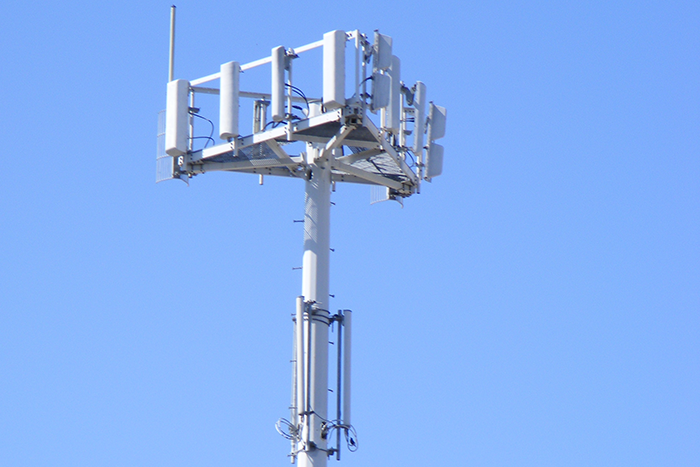Photo Courtesy of Wikimedia Commons/Justin Smith
“While providers have worked to ensure backup power to towers and agreed to other methods that help to keep Americans connected, what we need is a law on the books that is fit for the times, and that is what the SANDy Act very clearly provides,” Sen. Schumer said.
By Forum Staff
At the peak of a particularly devastating hurricane season, Senate Minority Leader Charles Schumer has announced that he will be making a major push to pass the Securing Access to Networks in Disasters Act, which would ensure that cell phone carriers maintain access to signals and lifesaving information during emergencies.
New York’s senior senator said the law would formally recognize that the majority of U.S. households rely on cell phones as their primary method of communication. Moreover, those who do use land lines, often use a service that delivers operability via an internet connection. This reality makes wireless towers and antennae networks more critical than ever, and is the reason Schumer is pushing to pass the SANDy Act this hurricane season.
“Dependable and redundant cell phone service is a necessity for emergency workers and a lifeline for residents left without power,” Schumer said. “After [Superstorm] Sandy hit, far too many impacted residents struggled to get service because far too many cell towers were rendered inoperable and we have seen these impacts with so many other storms. That’s why in an age where many people only have cell phones, we must make sure they can use them. While providers have worked to ensure backup power to towers and agreed to other methods that help to keep Americans connected, what we need is a law on the books that is fit for the times, and that is what the SANDy Act very clearly provides.”
The major aspects of the SANDy Act include:
• Ensuring that during an emergency consumer cell phones work on other carriers’ networks even if their own network becomes inoperable.
• Assigning priority calling to 911 services and emergency communications from networks and local emergency services.
• Begin a process to provide 911 services over Wi-Fi hotspots during emergencies.
• Make sure all communication providers—TV, land line, radio—can fix outages faster, even across state lines.
• Directing FEMA to play an even larger role in the aftermath of storms as it relates to downed power lines and cell towers—having the agency at the table during the re-connecting stage of storm recovery.
Schumer added that the necessity of a broad federal law that focuses on communications will grow more important every day as more and more customers abandon wired telephone lines. Among the things Schumer has pushed communications providers to consider are backup generators, alternate power sources, temporary towers and mobile trucks. The senator also suggested they investigate ways to “harden” cell infrastructure, making it less susceptible to damage.
“I remember, in neighborhoods of Staten Island, Brooklyn, Queens, Lower Manhattan, and Long Island, there was a virtual communications blackout, with residents struggling to find out vital information such as where disaster aid resources were located, and what had happened to their friends, family and neighbors. First responders were severely hindered as well – in Long Beach, for example, special equipment needed to be brought in so they could continue to communicate,” Schumer said as he recalled the aftermath of Sandy. “When it comes to keeping our vital communications networks up-and-running, the SANDy Act delivers the right stuff.”

